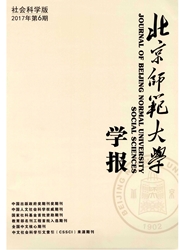

 中文摘要:
中文摘要:
贸易开放会导致不同文化间的交流和碰撞,一方面使得国外有益文化传递到国内,提升一国居民的信任感、尊重和自我控制等文化特质;另一方面,也可能破坏一国价值体系,瓦解社会凝聚力,降低自我认同感,“湮没”已有的文化观念.那么,贸易开放最终会对一国文化产生怎样的影响?通过40个国家的5轮面板数据(1984、1989、1994、1999、2004)的实证分析发现:贸易开放对文化存在着正向效应,即开放会促进一国文化的进步;但是这个影响效应并非线性不变的,它随着收入分配不平等程度的加剧,而呈现出具有单个门槛特征的非线性区间关系,当收入分配不平等跨过门槛值后,贸易开放带来的正向促进效应将衰减.就中国实际而言,其可能的政策含义有两点:(1)政府要正视对外开放带来的有益影响,避免以“文化例外”为由而实行过度的贸易保护,将精力置于传统文化的保护和促进文化发展的市场化上;(2)缓解收入分配恶化的局面,可以有效促进有益的文化特质在不同的阶层间传递与融合.
 英文摘要:
英文摘要:
Trade opening will lead to communication and collision among different cultures. It may on the one hand transmit beneficial cultures into home countries and promote such cultural qualities as the sense of confidence, respect and selfcontrolling;and on the other it may also destruct the home country's value system, disintegrate the social cohesive force, reduce the selPidentity,and"bury"the inherited cultural ideology. Then what kind of influence may trade opening exert on a home country? Our empirical study shows that it has a positive effect upon a culture, that is, to advance the progression of the culture. However, this is not a linear one; there may have non-linear section where negative effect occurs to unequal degree of income distribution,as the case suggests in China. On that finding,the author puts forward a number of solutions to the problem.
 同期刊论文项目
同期刊论文项目
 同项目期刊论文
同项目期刊论文
 期刊信息
期刊信息
